Education
Trump administration says Penn violated sex discrimination laws after trans swimmer competed
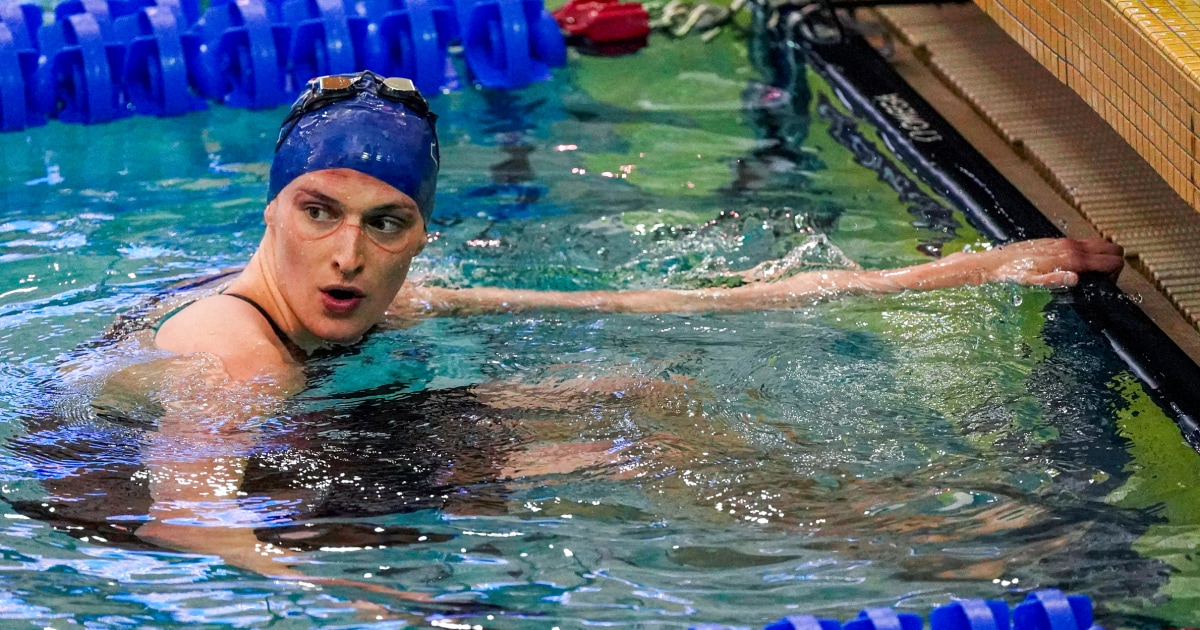
HARRISBURG, Pa. — The Trump administration said Monday that the University of Pennsylvania violated laws guaranteeing women equal opportunities in athletics by letting a transgender swimmer compete on the school’s women’s team and into team facilities.
The administration’s statement does not name Lia Thomas, the transgender swimmer who last competed for the Ivy League school in Philadelphia in 2022 and was the first openly transgender athlete to win a Division I title that year — an award Thomas now faces losing.
But the investigation opened in February by the U.S. Education Department’s Office for Civil Rights focused on Thomas, who became a leading symbol of transgender athletes and a prominent political target of Republicans and President Donald Trump.
The department said Penn violated a law barring sex discrimination in schools and colleges, called Title IX, by “denying women equal opportunities by permitting males to compete in women’s intercollegiate athletics and to occupy women-only intimate facilities.”
Penn had no immediate comment Monday, but Penn has said in the past that it always followed NCAA and Ivy League policies regarding student participation on athletic teams, both when Thomas swam and currently.
The department said Penn has 10 days to voluntarily resolve the violations or risk prosecution.
The department wants Penn to issue a statement saying that it will comply with Title IX; effectively strip Thomas of any awards or records in Division I swimming competitions; and apologize to each female swimmer “whose individual recognition is restored expressing an apology on behalf of the university for allowing her educational experience in athletics to be marred by sex discrimination.”
The Trump administration in March suspended approximately $175 million in federal funding for Penn over its decision to let Thomas compete, the White House has said. The Ivy League school’s federal money came from the Defense Department and the Department of Health and Human Services.
In 2022, the NCAA used a sport-by-sport approach to allowing transgender athletes to participate, deferring to an individual sport’s national governing organization, international federation or prior established International Olympic Committee criteria.
Thomas competed under those guidelines, which allowed female transgender swimmers who had completed one year of hormone replacement therapy to compete.
The NCAA changed its policy the day after Trump signed an executive order on Feb. 5 that was intended to ban transgender athletes from competing in girls and women’s sports. That ended its sport-by-sport practice in favor of a blanket policy that only allows athletes assigned female at birth to participate in women’s sports.
The Education Department also opened reviews of San Jose State University volleyball, Denver Public Schools, Portland Public Schools, Oregon School Activities Association and the Massachusetts Interscholastic Athletic Association.
It also sued the state of Maine to force it to ban transgender athletes from girls’ and women’s sports or face prosecution.
Education
Students and faculty demand Columbia University stand up to federal government
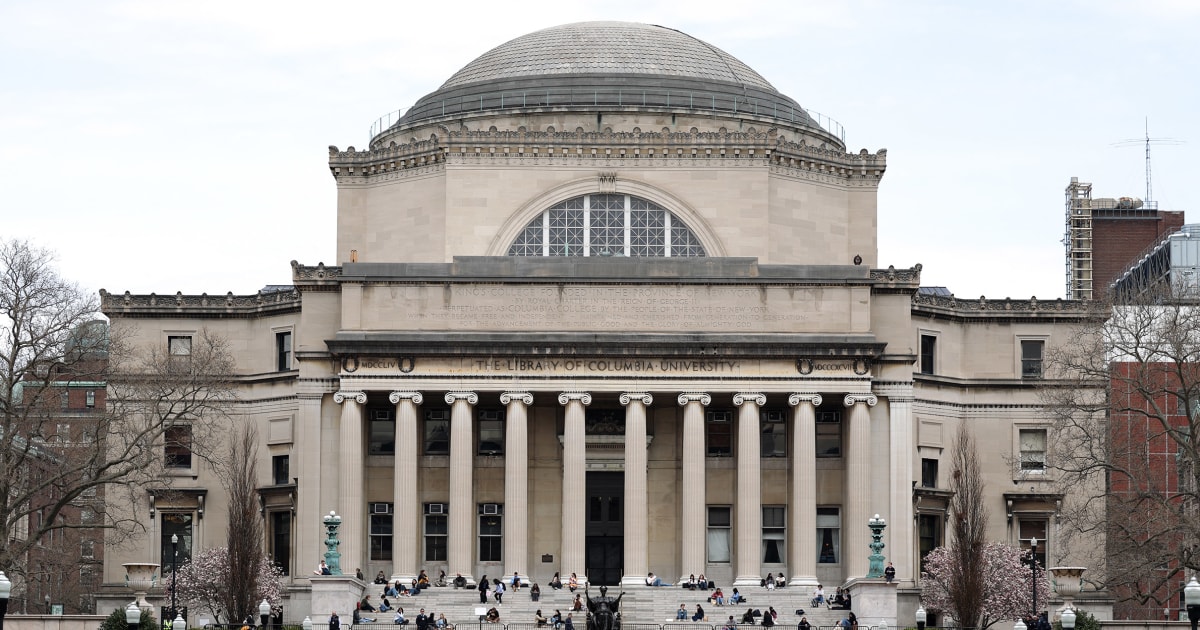
Columbia University students, faculty, staff and alumni launched a “speak out” Monday to criticize school leaders for bowing to the Trump administration’s demands after it pulled $400 million in federal funding from the campus.
Hundreds of students, faculty, staff and alumni were expected to take part in the 25-hour event that organizers said was intended to amplify a growing position within the Columbia community that the school administration had caved-in to Washington and that the school’s academic freedom was under attack.
The administration has paused billions of dollars in federal grants and research funding at universities nationwide to target what it describes as a failure to deal with antisemitism and its handling of protests against Israel’s military action in the Gaza Strip.
“All of us have dedicated our lives to both a continual process of learning but also educating,” Brooke West, a professor of social work at Columbia said, as dozens of students walked by. “But how can we do that when our students, when our institutions and academic freedom and free speech are under attack?”
Columbia was the first university the administration targeted, and it conceded to several requests, including adjusting its admissions process and implementing “greater institutional neutrality.”
White House spokesman Harry Fields said Monday that some universities failed to protect Jewish students and violated the law.
“Universities’ violation of federal law, due to their blatant reluctance to protect Jewish students and defend civil rights, is unbecoming of institutions seeking billions in taxpayer funds,” Fields wrote in an email. “The Trump Administration remains committed to reforming higher education and combating anti-Semitism.”
The Trump administration told the university last month that it would reinstate the school’s federal funding if it met certain demands, including banning masks on campus and holding disciplinary hearings for student protesters
Students and faculty said they had some demands of their own for the university: fight back against federal attacks; protect and defend students and international scholars; re-establish diversity policies; and protect researchers.
Professors at the rally hoisted signs reading, “Columbia Fight Back,” “Defend Freedom of Speech” and “Protect our Students.”
Authorities have apprehended at least three Columbia students in recent weeks, including graduate student Mahmoud Khalil, who was involved in student protests last year.
Education
1 dead, 6 wounded in shooting at Elizabeth City State University
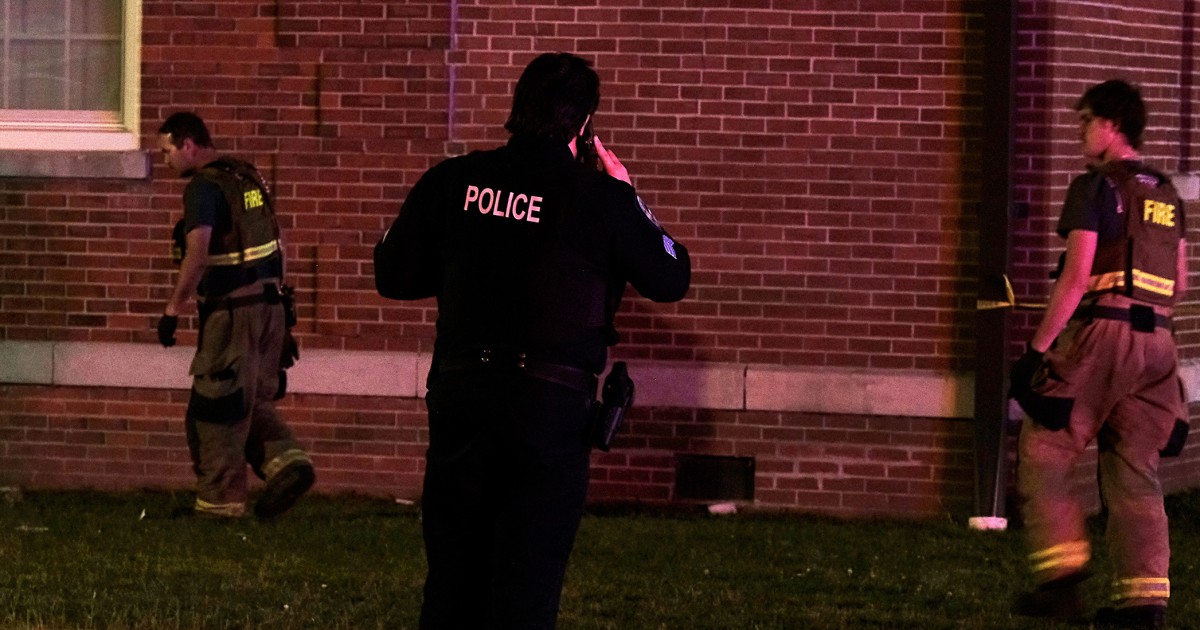
ELIZABETH CITY, N.C. — A shooting at a small college in eastern North Carolina left one person dead and six others wounded and prompted a campus lockdown early Sunday, the university said.
The shooting occurred in the center of Elizabeth City State University’s campus following Yard Fest, the final event of the historically Black university’s weeklong Viking Fest celebration, the school said in a statement.
A 24-year-old man who was not a student was pronounced dead. His identity wasn’t immediately released pending notification of his family, the statement said.
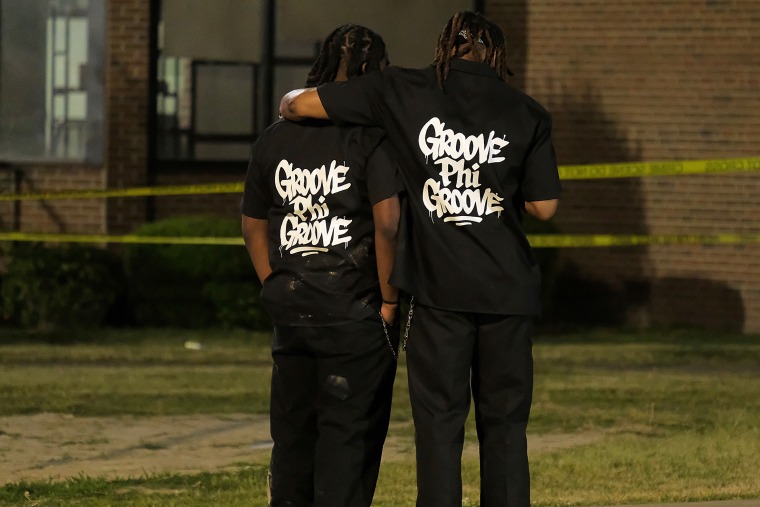
Four people sustained gunshot wounds, including three students, while two other students were injured during the commotion. None of the injuries were considered life-threatening. All the injured were taken to a hospital for treatment, the statement says.
A call to campus police was referred to a university spokesperson, who didn’t immediately return a telephone message.
“The university is deeply saddened by this senseless act,” the university said in an earlier statement.
The lockdown was later lifted, and the university increased patrols across campus as a precaution. Access to the center of campus remained restricted later Sunday.
The university has 2,300 students and is about 50 miles south of Norfolk, Virginia.
Education
Havard students and faculty face the fallout from a showdown with Trump

After freezing $2.2 billion in funding, the Trump administration has also singled out Harvard in other key ways: It threatened the university’s nonprofit status and its ability to host international students and faculty, who comprise roughly a quarter of the student body and help fuel research in every part of the school.
Some faculty expressed concern that Harvard would no longer be able to attract top talent. “This is the United States saying to the best and brightest minds around the world that you are not welcome,” said Tarek Masoud, a professor of democracy and governance at the Harvard Kennedy School.
Abdullah Shahid Sial, the undergraduate student body co-president, came to Cambridge from Lahore, Pakistan, hoping to work with the “greatest professors in the world.” Now, he’s written an op-ed to run in The Harvard Crimson in case he is deported for speaking out. “If at any point they want me out, then I would rather go in a much more dignified manner,” he said.
One Harvard scientist was detained and at least 11 other people affiliated with the university have lost their visas in recent weeks, though some were restored by the government on Friday.
In an interview Wednesday, two days after the university filed suit to try to win back its federal funding, Harvard President Alan Garber stood by the school’s decision to take a stand.
“It’s bigger than Harvard,” Garber told “NBC Nightly News” anchor Lester Holt. “We are defending what I believe is one of the most important linchpins of the American economy and way of life — our universities.”
Harrison Fields, a White House spokesperson, criticized the university’s response. “Colleges are hooked on federal cash, and Mr. Garber’s public outburst only fuels the push to shut off the taxpayer money propping up their institution,” he said.
With final exams and graduation now looming, many are bracing for a prolonged battle that could have reverberations for years to come.
Steven Pinker, a well-known psychology professor, co-founded the Council on Academic Freedom at Harvard to promote “free inquiry, intellectual diversity and civil discourse.” He agrees with criticism that Harvard needs more viewpoint diversity but thinks the government’s demands go way too far, he said.
Harvard was told, among other demands in an April 11 letter, to increase viewpoint diversity among faculty and students (subject to the government’s approval), submit its hiring to a federal audit for more than three years, and use an ideological test on admissions for international students.
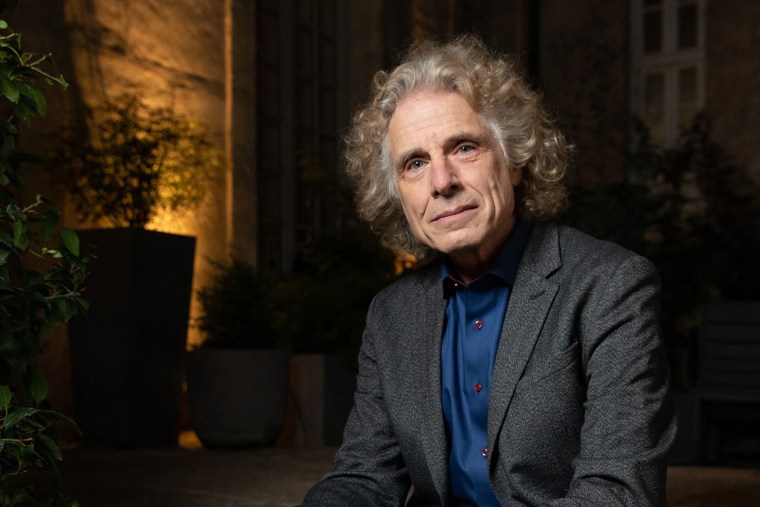
“I just don’t think Donald Trump has the statutory power to force his vision of viewpoint diversity on private universities,” Pinker said. “Could that mean that we have to have anti-vaxxers in the medical school? Does it mean we have to have ‘Stop the Steal’ theorists in the history department? MAGA theorists in political science programs? You just don’t want to give the government the power to make those decisions.”
When Harvard refused to comply, the Trump administration doubled down. In a letter sent April 16, the U.S. Department of Homeland Security demanded that Harvard provide the names of all international students who have “participated in protests” and their “disciplinary records,” with a deadline of April 30, after which it threatened to revoke Harvard’s ability to host international students.
Harvard has not yet said how it will respond and didn’t reply to questions about its plans.
Some international students feel caught in the crossfire between Harvard and the Trump administration.
“We’re being used as poker chips in a battle with the White House,” said Leo Gerdén, a senior from Stockholm, Sweden. “None of us wanted to take this fight.”

Sial, the student body co-president, is now working with administrators to ensure summer housing on campus for the increased number of international students planning to bunker down in Cambridge out of fear they’ll be prevented from re-entering the country.
Several other international students spoke on the condition of anonymity to avoid threatening their student visa status. They described this moment at Harvard as a doubly difficult: Already under threat of losing their visas — like more than 1,800 international students and recent graduates reportedly have nationwide, prior to the administration’s reversal this week — they’re also at the school that Trump is most closely scrutinizing.
One international law student said she won’t walk near protests, has taken down her social media profiles or made them private and looked into finishing her degree abroad. She keeps emergency hotline numbers and her passport with her at all times in case she is approached.
“I have no disciplinary record. I have no criminal record. I have nothing. And I’m a good student,” she said. “And, sure, I care about things, but that’s why you come to law school.”
An international environmental studies student said they now plan to leave the country once they finish their degree.
“I’m just trying to protect rivers and waterways and the environment,” they said, “and I don’t feel particularly wanted here.”
They regularly have to visit different states to conduct surveys but say they are now more fearful of travel.
“Just having the Harvard international student label on me,” they said, “it makes me a lot more anxious about being around airports or being around security.”
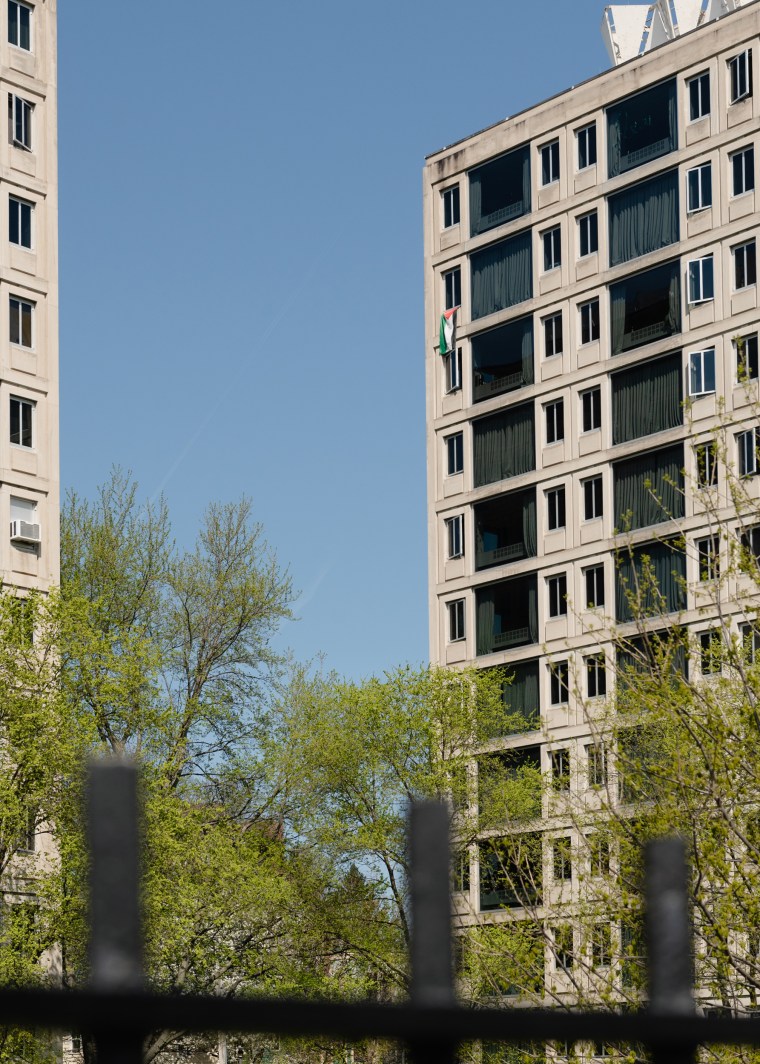
An undergraduate international student who attended last year’s Harvard encampment and got doxed for their pro-Palestinian activism said they moved off campus and stopped attending classes in person for two weeks, triggered by the detention of Tufts University graduate student Rumeysa Ozturk. They have canceled an academic trip to Europe and skipped out on iftars during Ramadan — communal meals where Muslims break their fast during the Islamic holy month — worried that ICE might target such gatherings.
“I don’t feel safe at all being around protests and voices, which actually kills me from the inside, because I want to go there, and I want to voice my opinion,” they said.
Though some students applauded Harvard’s stand against Trump, others have mixed feelings about the school’s response thus far.
Three students said the university had already acquiesced to some extent, even before the April 11 letter. They pointed to the firing of the Center for Middle Eastern Studies’ faculty heads, suspending the Harvard Divinity School’s long-standing Religion, Conflict and Peace Initiative, and pausing the School of Public Health’s research partnership with a Palestinian university.
Harvard didn’t respond to questions about these concerns. But Masoud, of the Harvard Kennedy School, said he thought those changes would have happened even if Trump hadn’t been elected.
-

 Lifestyle2 days ago
Lifestyle2 days agoHow bugs and beet juice could play roles in the race to replace artificial dyes in food
-

 Middle East2 days ago
Middle East2 days agoDeadly US strike hits Yemeni migrant centre | Israel-Palestine conflict News
-

 Conflict Zones2 days ago
Conflict Zones2 days ago‘Burst balloon’: How Pahalgam attack shattered Modi’s Kashmir narrative | Narendra Modi News
-
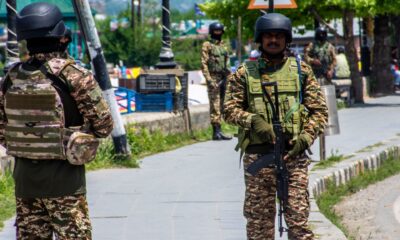
 Conflict Zones2 days ago
Conflict Zones2 days agoIndia and Pakistan continue to trade fire across Kashmir border | Conflict News
-

 Middle East1 day ago
Middle East1 day agoFires continue to rage at key Iran port as explosion death toll rises to 46 | Oil and Gas News
-

 Europe1 day ago
Europe1 day agoKim Kardashian armed robbery trial opens in Paris
-

 Sports1 day ago
Sports1 day agoMao Saigo: Japanese golfer celebrates Chevron Championship win by jumping in a pond
-
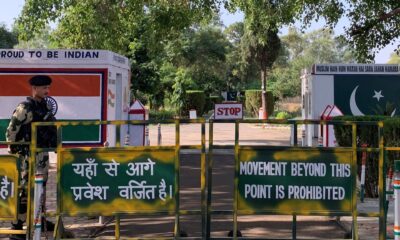
 Conflict Zones1 day ago
Conflict Zones1 day agoKashmir attack: Why Pakistan’s threat to suspend Simla Agreement matters | Conflict News



